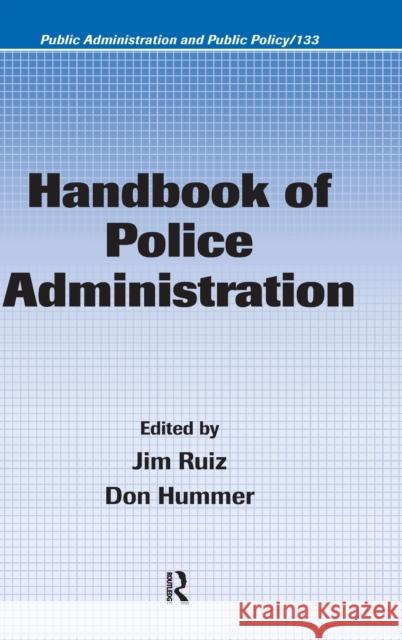Handbook of Police Administration » książka
Handbook of Police Administration
ISBN-13: 9781574445596 / Angielski / Twarda / 2007 / 472 str.
As figureheads of the most visible segment of criminal justice, today s police administrators are forced to tackle challenges never faced by their predecessors. Heightened local and global threats, advanced technologies, and increased demands for procedural transparency require new levels of flexibility, innovative thinking, and the ability to foster and maintain relationships within the community. It is more crucial than ever to recruit and retain capable leaders to guide law enforcement agencies at this pivotal time in history. Covering areas such as leadership in policing, use of force, and understanding how the law shapes police practice, Handbook of Police Administration examines the key topics that must be considered by law enforcement professionals. Recognizing that police leaders need the skills and traits of a politician, accountant, attorney, field lieutenant, and futurist, the authors cover a variety of contemporary issues surrounding police administration and management. Divided into five thematic sections, it considers the legal aspects of overseeing a public sector organization, as well as how research, technology, and training can assist modern police leaders in performing their duties more effectively and efficiently. The book covers problematic issues such as officers accepting gratuities, undercover work, and the time criteria required for promotional consideration. It concludes with a chapter comparing administrative issues in Australia with many of the subjects previously addressed with regard to U.S. protocol. Using a range of perspective, differing viewpoints, and controversial issues, Handbook of Police Administration provides a springboard to stimulate discussion at the cutting-edge of debate in the dynamic field of policing."











